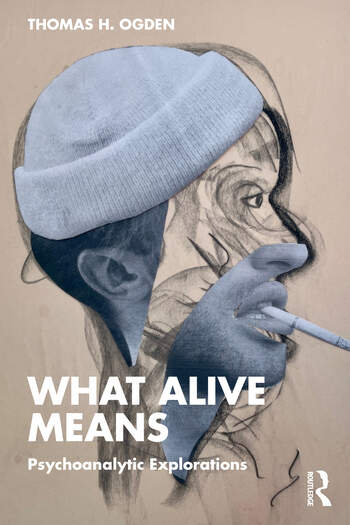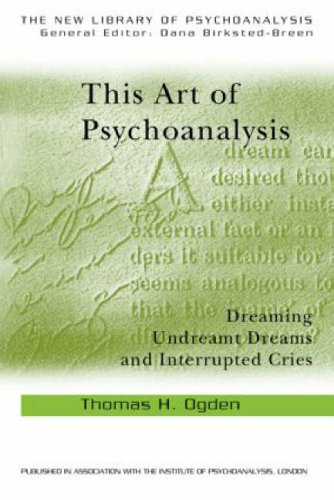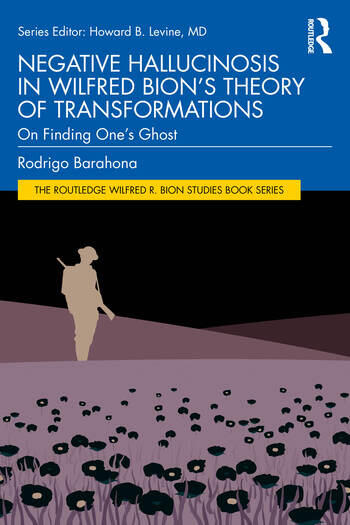The Matrix of the Mind: Object Relations and the Psychoanalytic Dialogue

Book Details
- Publisher : Routledge
- Published : 1992
- Cover : Paperback
- Pages : 286
- Category :
Psychoanalysis - Catalogue No : 10
- ISBN 13 : 9781855750401
- ISBN 10 : 1855750406
Also by Thomas Ogden
Our Customers Average Rating
Read all reviews (1)





A comprehensive overview of object relations theory from a Kleinian perspective. It includes chapters on phantasy, the paranoid-schizoid and depressive positions, internal objects, and the work of Winnicott on potential space.
Reviews and Endorsements
'The Matrix of the Mind is a book both highly scholarly and long overdue. In it, Dr Thomas H. Ogden establishes himself as a major psychoanalytic theoretician. He generates new psychoanalytic understandings that can be used to remove the alienation within the field and enrich the thinking of not only North American analysts but those who have followed the British object relations theory as well, The Matrix of the Mind is one of the most important psychoanalytic books to appear in many years.'
- L. Bryce Boyer, M.D.
'All who are acquainted with Thomas Ogden's papers on psychoanalysis and with his authoritative book Projective Identification and Psychotherapeutic Technique have eagerly awaited the publication of The Matrix of the Mind. Ogden supplies an approach to Kleinian theory that is both eminently appreciative and incisively critical. He comprehensively and brilliantly surveys the development of the concept of internal objects and relationships. The chapters dealing with winnicott's theoretical and clinical contribution to the history of psychoanalytic thought are particularly profound and original. This eminently readable and thought provoking book will be read with interest not only by dedicated psychotherapeutic workers in varied fields, but also by all those who take an intelligent interest in the way human beings function psychologically.'
- Joyce McDougall, D.Ed.
'Thomas Ogden puts the contributions of Klein, Bion and the British object relations school into a new and refreshing perspective. His approach is unique, innovative, and far-reaching. This book is a brilliant tour-de-force in refining and clarifying the present and continuing importance of object relations theory for psychoanalytic thinking and practice.'
- James S. Grotstein, M.D.
About the Author(s)
Thomas Ogden, MD, published his debut novel, The Parts Left Out, in 2014. He has also published twelve books of essays on the theory and practice of psychoanalysis, and on the writings of Frost, Borges, Kafka, and others. His most recent works of non-fiction include The Analyst’s Ear and the Critic’s Eye: Rethinking Psychoanalysis and Literature; Creative Readings: Essays on Seminal Analytic Works; Rediscovering Psychoanalysis; and This Art of Psychoanalysis: Dreaming Undreamt Dreams and Interrupted Cries. . His work has been translated into twenty languages.
Dr Ogden was awarded the 2012 Sigourney Award for his “contributions to the field of psychoanalysis”; the 2010 Haskell Norman Prize for “outstanding achievement as a psychoanalytic clinician, teacher and theoretician”; and the 2004 International Journal of Psychoanalysis Award for “The Most Important Paper of the Year.” He practices psychoanalysis in San Francisco, where he teaches both psychoanalysis and creative writing.
Customer Reviews
Our customers have given this title an average rating of 5 out of 5 from 1 review(s), add your own review for this title.
Renato Morais on 30/07/2004




 (5 out of 5)
(5 out of 5)
This is one of the best overviews on theoric and clinical aspects of analitic psychoterapy I Know. Ogden follows the Freud/Klein/Bion steps, always putting out the question "But what does this really mean? How can it be used, how can it be helpful in the everyday practice?". It´s never a blind acceptence of the strong or popular line of thougt, so no klein/freud controversies here. He cares about the real thing, not the collour of your club. The winnicott influence is very strong and matrix idea comes from his thinking. It comes like the necessary links to put out an integration of the different lines of thougt in psychoanalysis. This book is simply brilliant and a must have, if you like being intectualy honest in your practice and don´t care mutch about litle wars of "my orientation is better than yours" kind of thing. If only I could give it stars!...
You may also like
Negative Hallucinosis in Wilfred Bion’s Theory of Transformations: On Finding...
Rodrigo Barahona
Price £29.99









